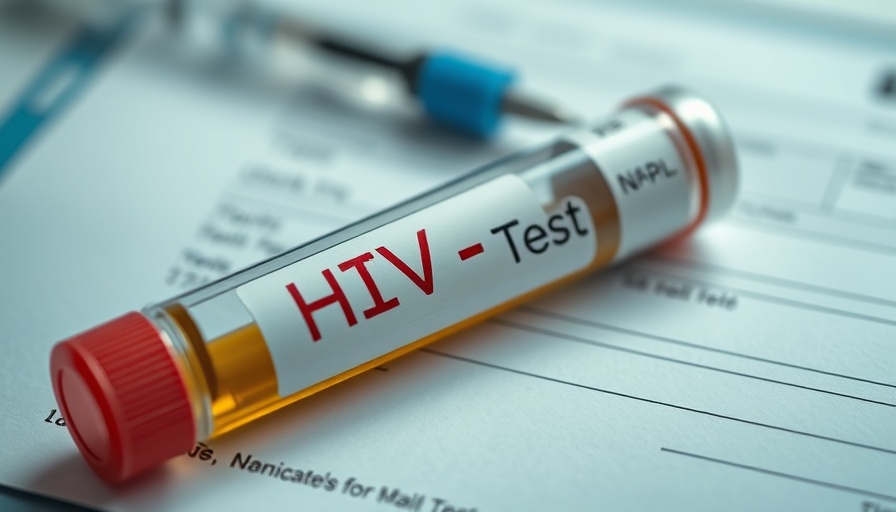
Critical Cutbacks in HIV Care: A Threat to Mother's and Children's Health
In a shocking turn of events, the recent termination of key U.S. health officials overseeing HIV care has ignited fears among healthcare providers and advocates about the future of treatment for vulnerable populations, particularly mothers and children in low-income countries. This abrupt change, resulting from the Trump administration's decision to reorganize agencies like the CDC and USAID, leaves many worrying about the implications for over 1.1 million people dependent on the President’s Emergency Plan For AIDS Relief (PEPFAR).
Consequences of Dismantling Health Programs
Eliminating these teams will likely hinder crucial HIV services that prevent mother-to-child transmission and provide care for infected children. With studies predicting disastrous outcomes—envisioned as 1 million new infections and 500,000 AIDS-related deaths in children by 2030—this decision has serious repercussions. Currently, an alarming statistic reveals that a child under 15 dies from AIDS every seven minutes in sub-Saharan Africa. This not only underscores the sobering reality faced by these communities but also raises questions about the prioritization of maternal and pediatric health within U.S. foreign aid initiatives.
The Importance of Coordination in HIV Care
Experts argue that the coordination provided by officials who have now been cut is vital, especially as healthcare systems attempt to navigate the complexities of global health challenges. Previously, these officials managed over 300 grants across more than 40 countries, ensuring the flow of medications and resources essential for effective treatment. Sudden changes in leadership disrupt this coordination, posing a severe threat to treatment timelines and existing structures that have shown promise in reducing infection rates.
Moving Forward: What Does This Mean?
While PEPFAR funding continues, the lack of staff to manage its implementation leaves programs vulnerable. For organizations reliant on CDC support, like the Elizabeth Glaser Pediatric AIDS Foundation, the uncertainty surrounding funding and resources presents immediate challenges. Health advocates hope that this recent decision is merely a temporary setback, expressing concerns that the current administration may overlook the importance of maintaining effective HIV healthcare delivery systems.
As discussions about healthcare funding and support evolve, it is critical for advocates, healthcare providers, and the public to recognize the urgency of the situation. The health and future of countless mothers and children hang in the balance. As we reflect on these changes, the need for community involvement and advocacy becomes more evident.
If you are seeking detailed information about the status of HIV care programs or wish to learn how you can help, do not hesitate to contact us for more insights. Advocacy and informed action can make a difference in safeguarding essential healthcare for the most vulnerable populations.
 Add Row
Add Row  Add
Add 




Write A Comment